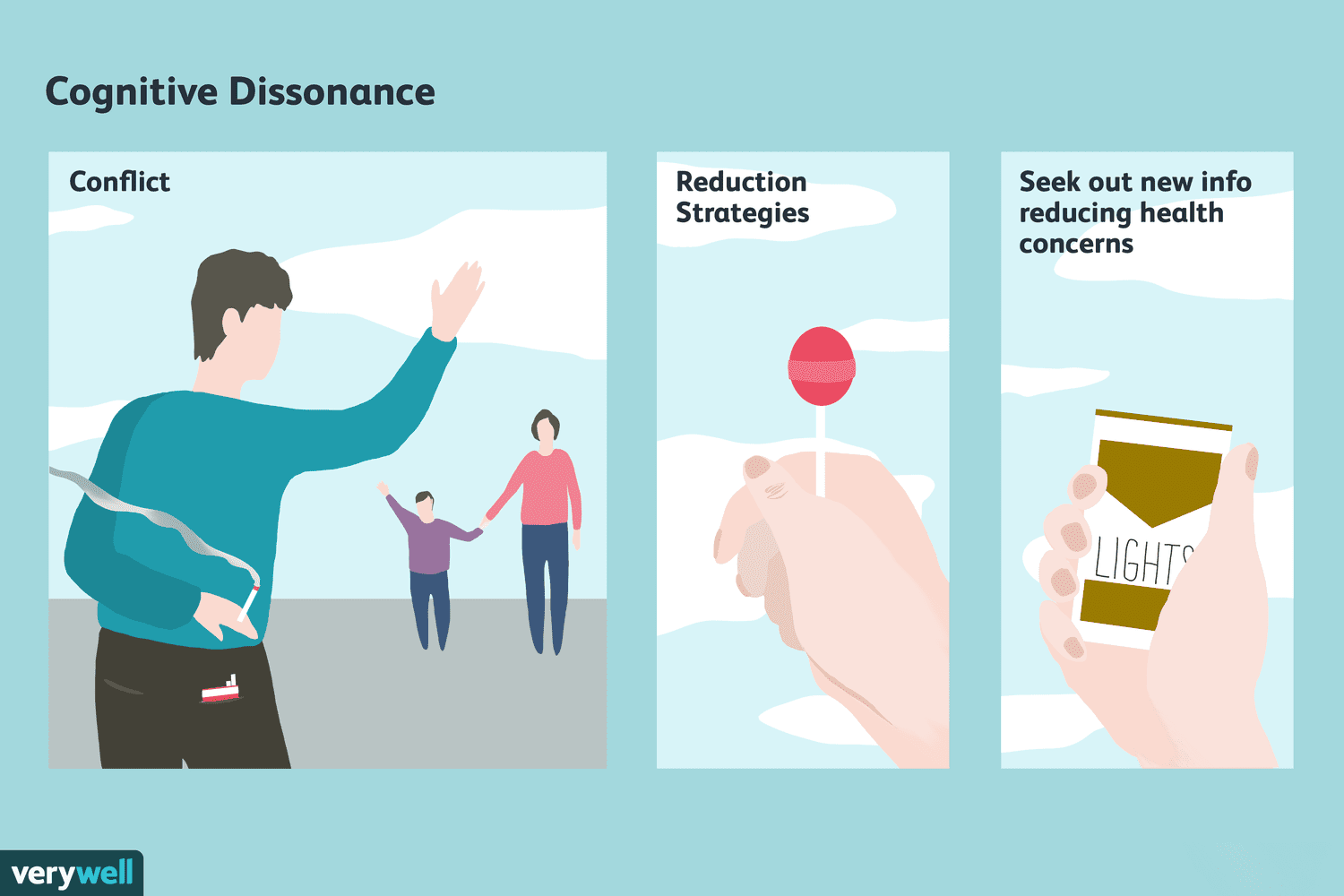Cognitive Dissonance Theory
Cognitive dissonance theory is a psychological framework suggesting that we have an inner drive to hold all our attitudes and beliefs in congruence and avoid disharmony, or dissonance, in our thoughts.

Cognitive Dissonance Theory, developed by Leon Festinger, proposes that we strive for internal consistency, and when we experience inconsistency (dissonance) among our attitudes, beliefs, or behaviors, we'll try to mitigate the discomfort and achieve a balanced state. For example, if someone values health but smokes, they may experience cognitive dissonance. They may adjust their attitudes (believing smoking isn't so bad), change their behavior (quitting smoking), or acquire new knowledge (smoking helps manage weight). Each approach seeks to restore harmony between their beliefs and actions.